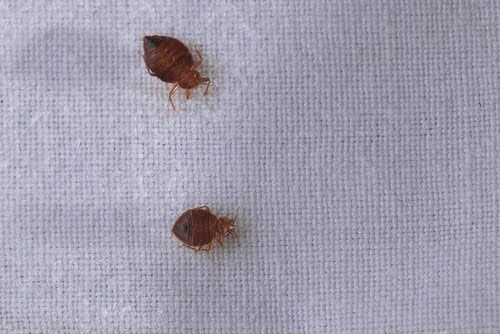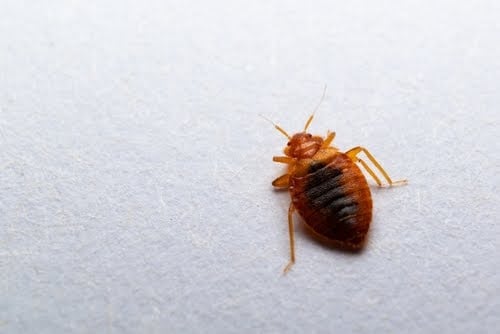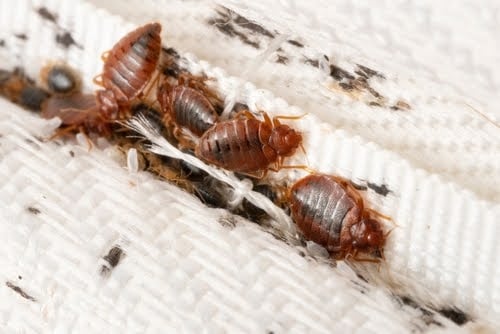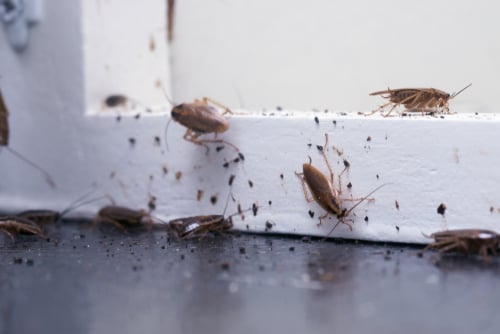To put it bluntly, bed bugs are the worst. The stealthy, blood-sucking nature of these insects can wreak havoc on your home and emotions. While it is possible to eliminate them early, it’s best to understand what prevents an infestation in the first place.
What Are Bed Bugs?

Bed bugs are small, parasitic insects often mistaken for fleas. They have reddish-brown, flat, wingless bodies and are about the size of an apple seed. While spotting a single bed bug doesn’t always mean you have a full-blown infestation, it should be taken seriously, especially since one female can lay up to 500 eggs in her lifetime.
Where Do Bed Bugs Hide?
Bed bugs are drawn to warm-blooded hosts and prefer to stay close to sleeping areas. They often burrow into mattresses, box springs, headboards, and cracks in furniture. Even clean homes can unknowingly offer ideal hiding spots, including piles of laundry or behind baseboards.
When Are Bed Bugs Active?
These pests are nocturnal feeders, typically emerging at night when people are asleep. Their bites are often discovered in the morning. Some people don’t react to bed bug bites, but those that do will have itchy, red bumps that tend to appear in clusters. Because they’re stealthy, bed bug activity can go unnoticed for a while.

What Are the Signs of Bed Bugs?
Aside from bites, look for signs like tiny dark droppings, pale yellow shed skins (exoskeletons), or even live bugs. These indicators are often found near the seams of mattresses, inside furniture, or around bed frames.
How Dangerous Are Bed Bugs? Are They Really That Bad?
So, are bed bugs harmful? The good news is, bed bugs don’t transmit diseases. However, some people have allergic reactions to bites, noting irritation or intense reactions in severe cases. Research has shown that they leave histamines behind that can also trigger allergies and respiratory issues. If you suspect a bad reaction to a bed bug bite, consult with your primary physician right away.
What to Do If You Get Bed Bugs
If you spot a bed bug crawling among your belongings, try not to panic. Early detection is a good thing! Yes, one bug can turn into a big problem, but here’s how to get ahead of a full-on infestation.
Keep Calm, but Act Quickly
The most important thing to do first is to try to track down where the bug came from. Did you find it in your bed or luggage? Put your sheets or luggage contents in the dryer on the hottest settings the items can handle for a cycle. Drying on high heat will do the job as well. However, it’s best to wash and dry them. Then, scan your items thoroughly for eggs or other hitchhikers.
Create a Plan of Action
After tackling the initial site of the bed bug, go through the entire house to make sure its friends didn’t find a neighboring spot to lurk. Steam personal and guest mattresses and furniture upholstery to kill potential eggs. Stick your clothes, shower curtains, and towels in the dryer and wipe down table and chair legs.
Stay Home If You Can
As you craft your plan of action, stay indoors. It’s not uncommon for bed bugs to slowly travel from host to host (which is probably how they ended up in your house), so until you’re sure there hasn’t been a recent bed bug sighting, stay in. You don’t want to give them to a neighbor.
Try to Stay Positive
Remember that bed bugs are not a reflection of you or your cleanliness. Many who have experienced bed bug infestations often grapple with feelings of paranoia and embarrassment, but know that it’s a common enough issue without one cause. Getting rid of the pests is a tough, emotional journey, but not impossible with the right support.
Call Plunkett’s Pest Control
Understandably, you might not want to deal with bed bugs yourself. Call a quality exterminator like Plunkett’s for effective bed bug treatment. Even if you’re unsure where to start, an exterminator can let you know which services you’ll need. Leaving the dirty work to the professionals will give you some necessary peace of mind.

How to Prevent Future Bed Bugs
Even the cleanest homes can host bed bugs, but the best defense against the pests is prioritizing prevention. Try these tips to keep bed bugs away:- Protect your mattress. Equipping your bed with a plastic mattress protector adds an extra shield around your mattress. It won’t affect the softness of your bed, but it will protect against outside factors.
- Regularly steam your bed. On days that you wash your sheets, use a steamer to deep clean your mattress. A vacuum will also pick up dust and debris, while a steamer kills the lingering germs.
- Check pets for unwanted pests. After long hikes or daily walks, check your dog to make sure it’s not bringing home any unwanted guests. As we mentioned, bed bugs also feed on animals!









